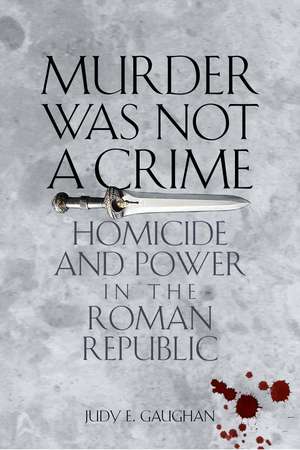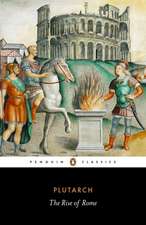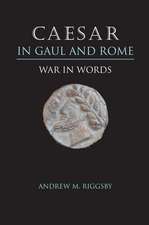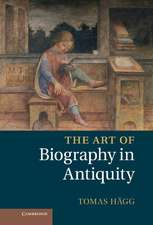Murder Was Not a Crime: Homicide and Power in the Roman Republic
Autor Judy E. Gaughanen Limba Engleză Paperback – 15 ian 2010
With implications that could modify the most fundamental beliefs about the Roman republic, Gaughan's research maintains that Roman criminal law did not contain a specific enactment against murder, although it had done so prior to the overthrow of the monarchy. While kings felt an imperative to hold monopoly over the power to kill, Gaughan argues, the republic phase ushered in a form of decentralized government that did not see itself as vulnerable to challenge by an act of murder. And the power possessed by individual families ensured that the government would not attain the responsibility for punishing homicidal violence.
Drawing on surviving Roman laws and literary sources, Murder Was Not a Crime also explores the dictator Sulla's "murder law," arguing that it lacked any government concept of murder and was instead simply a collection of earlier statutes repressing poisoning, arson, and the carrying of weapons. Reinterpreting a spectrum of scenarios, Gaughan makes new distinctions between the paternal head of household and his power over life and death, versus the power of consuls and praetors to command and kill.
Preț: 198.12 lei
Nou
Puncte Express: 297
Preț estimativ în valută:
37.91€ • 39.68$ • 31.55£
37.91€ • 39.68$ • 31.55£
Carte tipărită la comandă
Livrare economică 31 martie-14 aprilie
Preluare comenzi: 021 569.72.76
Specificații
ISBN-13: 9780292725676
ISBN-10: 0292725671
Pagini: 214
Dimensiuni: 152 x 229 x 16 mm
Greutate: 0.32 kg
Editura: University of Texas Press
Colecția University of Texas Press
ISBN-10: 0292725671
Pagini: 214
Dimensiuni: 152 x 229 x 16 mm
Greutate: 0.32 kg
Editura: University of Texas Press
Colecția University of Texas Press
Notă biografică
Judy E. Gaughan teaches at Colorado State University.
Cuprins
- Abbreviations
- Preface
- Acknowledgments
- Introduction
- Chapter One: Killing and the King
- Chapter Two: Power of Life and Death: Pater and Res Publica
- Chapter Three: Killing and the Law, 509-450 B.C.E.
- Chapter Four: Murder Was Not a Crime, 449-81 B.C.E.
- Chapter Five: Capital Jurisdiction, 449-81 B.C.E.
- Chapter Six: License to Kill
- Chapter Seven: Centralization of Power and Sullan Ambiguity
- Epilogue
- Notes
- Bibliography
- Index
Recenzii
Overall, this is an enjoyable and well-researched work, which offers an interesting hypothesis that I hope will be a useful addition to the wider debate on Roman law. As stated above, however, one of its greatest strengths is its consideration of the wider implications of homicide in Roman society. Accordingly, it sheds a fascinating new light on the wider issues of power in the republican period and beyond.
Descriere
This pathfinding study looks at how homicide was treated in Roman law from the Roman monarchy through the dictatorship of Sulla (ca. 753–79 BC) to show how criminal law can reveal important aspects of the nature and evolution of political power.

















